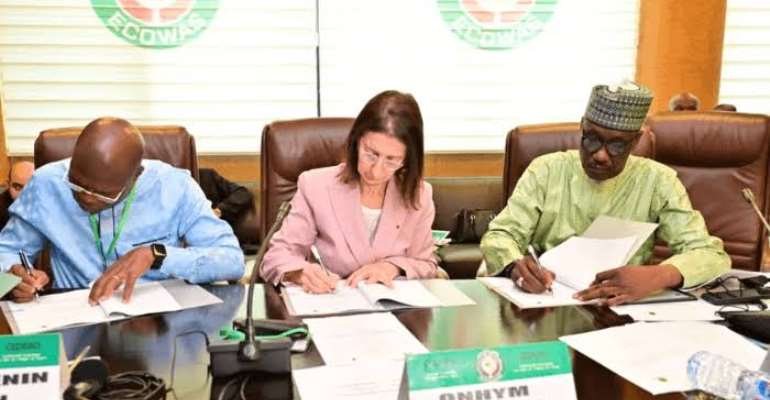Six West African nations, namely Nigeria, Morocco, Cote d’Ivoire, Liberia, Benin, and Guinea, joined forces at the ECOWAS headquarters to sign four MoUs. These agreements focus on the $30 billion Nigeria-Morocco Gas Pipeline Project. Additionally, the project’s steering committee gathered at ECOWAS headquarters to discuss its advancement and strategic course.
These newly signed MoUs reinforce the commitment of the participating countries to this strategic project. Similar agreements have previously been signed with ECOWAS, Mauritania, Senegal, The Gambia, Guinea-Bissau, Sierra Leone, and Ghana, highlighting the widespread support for the initiative. The Nigeria-Morocco Gas Pipeline Project aims to unlock the economic potential of the region by facilitating the monetization of natural gas resources and providing an alternative export route to Europe.
Sediko Douka, the Commissioner for Infrastructure, Energy, and Digitalization at the ECOWAS Commission, emphasized the project’s magnitude and its far-reaching impact on the African continent. He highlighted that extensive feasibility studies, encompassing technical, financial, economic, social, and environmental aspects, have been conducted, confirming the project’s viability and bankability. The detailed engineering studies are currently underway, further validating the project’s feasibility.
Once completed, the Nigeria-Morocco Gas Pipeline Project is poised to bring about transformative changes, opening up immense opportunities and significantly benefiting the participating nations and the African continent as a whole.
“The project’s funding, estimated at nearly $30 billion, will primarily come from the private sector rather than the government,” stated the ECOWAS commissioner, highlighting the need for private sector involvement.
Regarding the project’s completion date, the commissioner acknowledged the complexities involved, emphasizing that it could take time. Feasibility studies have been completed, and efforts to attract investors will continue through road shows and roundtable forums.
NNPCL’s Group Chief Executive Officer, Mele Kyari, expressed appreciation for the Federal Government’s trust in the oil firm for this strategic project. He highlighted the opportunity it presents to leverage Nigeria’s abundant hydrocarbon resources, expanding energy access to support economic growth, industrialization, and job creation across Africa and beyond.

